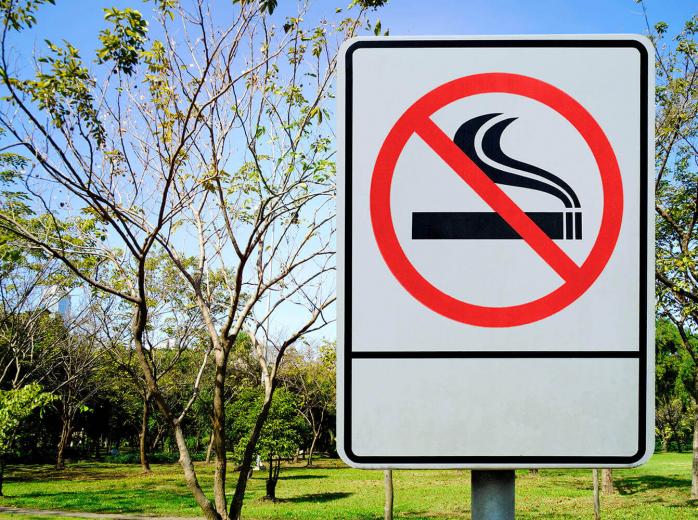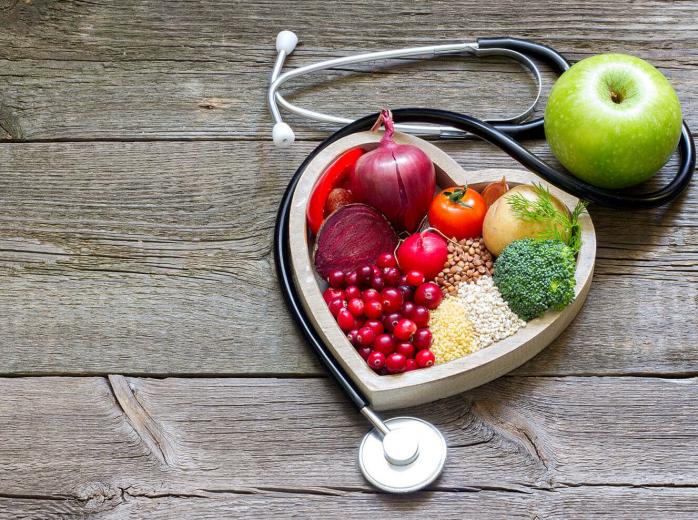
Heart disease risk factors you can control: Behaviors
Find steps women can take to lower their risk for heart disease.

Smoking
Smoking may be more dangerous for women than men. Read more.




Smoking
Smoking causes heart disease and can be even more dangerous for women than men. Women over 35 who smoke have a slightly higher risk of dying from heart disease compared to male smokers over 35.1 Smokers are up to four times more likely to have heart disease than nonsmokers. Even smoking in your 20s speeds up the process of developing heart disease.2
Smoking raises your risk for heart disease in many ways, including:
- Smoking can cause your blood to thicken and be more likely to clot.
- The nicotine in cigarettes can raise your blood pressure.
- Smoking causes atherosclerosis, which damages your blood vessel walls.
The longer you smoke, the more your risk of heart disease and heart attack goes up.
But within one year of quitting smoking, your heart disease risk is cut in half compared to what it was while you smoked. Within 15 years, your heart disease risk is the same as a woman who never smoked.2
Learn more about the risks of smoking and find women-specific resources for quitting at Women.SmokeFree.gov.
If you smoke, do not use hormonal birth control. Many studies have found that women who smoke and take combination birth control pills (birth control pills with both estrogen and progesterone) are at even higher risk of heart disease and stroke, especially women older than 35. Like smoking, birth control pills, and possibly other forms of combination hormonal birth control like the vaginal ring or skin patch, can raise your risk for blood clots and high blood pressure. Blood clots and high blood pressure can cause a heart attack or stroke.
Secondhand smoke also can harm the heart and blood vessels of people who don't smoke in the same way that smoking harms people who smoke.3 There are two types of secondhand smoke. One type is the smoke that comes from the burning end of a cigarette, cigar, or pipe. The other type is smoke that is breathed out by someone who is smoking. Both types are harmful when inhaled.
E-cigarettes and your heart health
Electronic or e-cigarettes, also called vaporizer cigarettes, release water vapor. Most e-cigarettes contain nicotine, the addictive chemical found in regular cigarettes. The Food and Drug Administration regulates e-cigarettes and all other tobacco products. Researchers do not yet know the potential long-term health effects of e-cigarettes or how much nicotine or other harmful chemicals are inhaled.
Researchers also do not yet know what effect e-cigarettes have on heart health. Talk to your doctor about the dangers of e-cigarettes to your health.
Eating habits
What you eat is a big part of preventing heart disease and other chronic (long-term) diseases like type 2 diabetes. Eating healthy can also prevent other health problems that lead to heart disease, like high blood pressure or obesity.
There is no special vitamin or ingredient that can prevent disease. Healthy eating to prevent chronic diseases means eating a healthy combination of foods from all of the food groups. Use the MyPlate Plan Tool at ChooseMyPlate.gov to find a personalized healthy eating plan.
Eating healthy also means you do not eat a lot of food with saturated fat or trans fat, sodium (salt), or added sugar.
Learn more about heart-healthy eating.
Physical activity
Less than one in every five American women gets enough physical activity to help prevent heart disease.4 Being inactive is a major risk for heart disease.
The heart is like any other muscle: the more you work it, the stronger it gets. Physical activity also helps keep your blood vessels flexible and open so the blood can reach all of your organs. It can help prevent the buildup of plaque in the arteries. Being active also can prevent other risk factors for heart disease. These include high blood pressure, diabetes, and obesity.
You need to get at least 30 minutes of physical activity five times a week to stay healthy. Learn more about physical activity.
Alcohol
If you don't already drink, don't start drinking for health reasons. Researchers are not sure that even one drink per day for women (or less) is heart healthy. More than three drinks a day can raise blood pressure and triglyceride levels and can damage your heart muscle. In women, there is strong evidence that alcohol increases your risk of breast cancer.5
There are many women who should not drink any alcohol, including
- Pregnant women or women trying to get pregnant
- Women younger than 21
- Women taking certain medicines (ask your doctor or nurse)
No amount of alcohol is recommended in the Dietary Guidelines for Americans because the potential risks and harms outweigh any benefit.
Stress
Stress is your body's response to a change or a challenge. Long-term stress raises your risk of heart disease. If you have heart disease, long-term stress also makes you more likely to have a heart attack.
An emotionally upsetting event, especially one involving anger, can be a trigger for heart attack.6 Stress also may indirectly raise your risk of heart disease if it makes you more likely to smoke, eat unhealthy foods, or less likely to exercise.
Learn more about stress and your health, including how to cope with stress in healthy ways.
Did we answer your question about heart disease risk factors?
For more information about heart disease risk factors, call the OWH Helpline at 1-800-994-9662 or check out the following resources from other organizations:
- What Are Overweight and Obesity? — Information on the risks of being overweight from the National Heart, Lung, and Blood Institute (NHLBI)
- Cholesterol — Information on the basics of cholesterol from the American Heart Association
- Diabetes and Heart Health — National Diabetes Education Program resources to manage diabetes and heart health
- High Blood Pressure — Information on high blood pressure from the NHLBI
- Smoking and Tobacco Use — A National Cancer Institute website for women on quitting
- Coronary Heart Disease Risk Factors — Information on heart disease from the NHLBI
- Heart Disease in Women — Information on heart disease and women from the NHLBI
Sources
- Centers for Disease Control and Prevention. (2014). Women and Smoking: Surgeon General's Report on Smoking and Health, 50th Anniversary 1964 - 2014.
- Centers for Disease Control and Prevention. (2004). The 2004 Surgeon General's Report. The Health Consequences of Smoking: What it means to you.
- NHLBI. (2016). How Does Smoking Affect the Heart and Blood Vessels?
- Centers for Disease Control and Prevention. (2016). Percentage of U.S. Adults Who Met the 2008 Federal Physical Activity Guidelines for Aerobic and Strengthening Activity, by Sex—National Health Interview Survey, 2000-2014. Morbidity and Mortality Weekly Report; 65(18): 485.
- National Cancer Institute. (2013). Alcohol and Cancer Risk.
- Mittleman, M.A.., Mostofsky, E. (2011). Physical, Psychological and Chemical Triggers of Acute Cardiovascular Events. Circulation; 124: 346-354.

